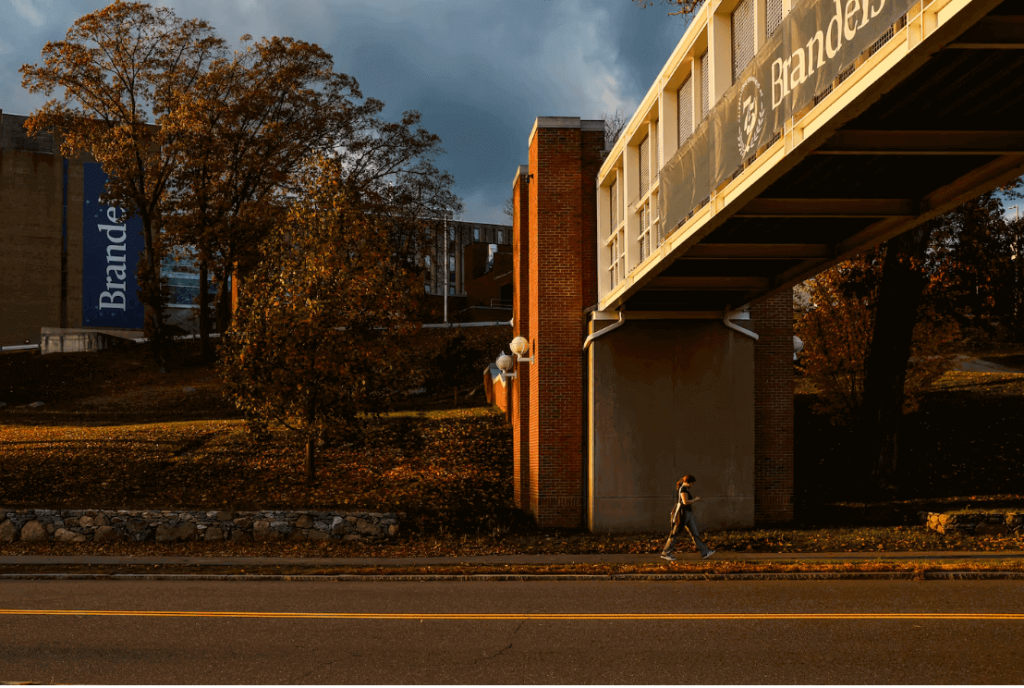【中美创新时报2024 年 9 月 26 日编译讯】(记者温友平编译)今年春天,布兰迪斯大学宣布大规模裁员,以应对不断恶化的财务状况。上周,教职员工通过了对学校校长罗恩·利博维茨Ron Liebowitz )的不信任投票。然后,在周三(25日)上午的意外公告中,该大学表示利博维茨已经辞职,他的八年任期将于 11 月 1 日结束。对此,《波士顿环球报》记者麦克·达米亚诺(Mike Damiano)对此作了下述报道。
这只是过去一年中一系列大学校长辞职中的最新一次。在此期间,全国各地的大学都遭受了财政困难、以色列-哈马斯战争的动荡以及关于学校领导应该或不应该采取何种政治立场的激烈辩论的冲击。
在周三上午发给大学社区的一封信中,利博维茨表示,他辞职“心情复杂,因为这是一所特殊的机构,由于其成立的原因,它具有重大意义,尤其是在这个时候。” 布兰代斯大学具有浓厚的犹太身份,成立于 1948 年,是犹太人和其他在高等教育中受到歧视的人的避难所。
布兰代斯大学未能逃脱过去一年因以色列-哈马斯冲突而引发的争议,但该校的财务挑战尤其突出。
“我们都知道高等教育面临阻力。布兰代斯大学尤其面临阻力,”他在今年早些时候接受采访时谈到学校的财务状况时说道,当时布兰代斯大学宣布裁员。
但上周,布兰迪斯大学的教职员工对此的表述更为直白。
《波士顿环球报》获得的一份文件概述了不信任投票的原因,教职员工将“预算短缺处理不当”列为首要抱怨。第二个原因被描述为利博维茨“筹款失败”,该文件称这“可能是他最重要的工作”。其他批评包括利博维茨“对学生抗议的过度反应”,例如去年在布兰迪斯举行的亲巴勒斯坦示威活动,当时有七人被捕,其中包括几名学生。
“教职员工严重关切地注意到,校长利博维茨一贯犯下严重判断错误和领导不力,”支持不信任动议的教职员工写道,该动议以 159 票对 149 票的微弱优势获得通过。
布兰代斯教职员工委员会主席杰弗里·莱诺维茨(Jeffrey Lenowitz )于周一上午宣布了投票结果,当时布兰代斯董事会正在召开例行会议。
一位布兰代斯高级管理人员表示,教职员工的投票并没有直接导致利博维茨辞职。由于未获授权向媒体发表讲话,该管理人员要求匿名。这位管理人员表示,布兰代斯董事会“在投票结束前已经做出了决定”。
周三上午,董事会主席莉萨 R·克兰克(Lisa R. Kranc)宣布,1970 年毕业于布兰代斯大学、曾任哥伦比亚大学教师学院院长的亚瑟·E·莱文(Arthur E. Levine )将担任临时校长。
“你不可能在一个周末内找到像亚瑟·莱文这样有能力的人,”这位管理人员指出。
“董事会已经考虑了这个问题很长时间,这几乎完全是由于缺乏领导力和我们的财务状况,”这位管理人员说。“我们面临着巨大的财务挑战。这不是‘哦,布兰迪斯要关闭了’。但我们需要在未来几年做出重大改变,以确保我们能够为下一代人解决。”
这位管理人员说,收入短缺导致了大规模裁员,例如裁员 60 人。学校还动用了其约 12 亿美元捐赠基金中的约 7% 来支付年度费用。一般来说,大学的目标是每年花费不到 5% 的捐赠基金。
“与许多学院和大学一样,布兰迪斯正在采取负责任的措施,确保其长期的财务可持续性,”布兰迪斯发言人朱莉·杰特说。
布兰迪斯大学由美国犹太社区于 1948 年创立,旨在接纳犹太人和其他在高等教育中遭受歧视的人,目前招收约 5,300 名本科生和研究生。近年来,该校入学人数不断下降,导致最近一个财年的预算出现赤字。
利博维茨此前曾于 2021 年 3 月与校董会发生争执,当时他指责校董会试图以他的筹款记录为由迫使他辞去校长职务。
布兰迪斯大学基督教和犹太研究名誉教授伯纳黛特·布罗滕 (Bernadette Brooten) 表示,教职员工主要关注学校的财务状况。
“我认为预算危机至关重要,他管理我们的财务以动用捐赠的方式,以及筹款方式。”布罗滕说。她说,教职员工对利博维茨关于以色列-哈马斯战争的声明及其对抗议的回应的强烈反对也发挥了一定作用,但作用较为有限。 “在教职工会议上,关于投票的筹款活动比加沙抗议活动讨论得更多。”
但对于一些教授来说,利博维茨对亲巴勒斯坦示威活动(导致学生被捕)的处理标志着一个转折点。
教职工将 11 月 10 日的活动描述为对 10 月 7 日袭击事件的回应,即以色列在加沙地带发动军事行动,杀害巴勒斯坦人的和平守夜活动。警方命令包括学生和校友在内的数十名示威者散去。《环球报》当时报道称,目睹这一事件的一些教职工表示,当警察进入现场并逮捕了七人,随后发生了暴力冲突时,学生们正在服从命令。沃尔瑟姆警方和布兰迪斯大学警方都参与了此次行动。
布兰迪斯大学英语教授乌尔卡·安贾里亚 (Ulka Anjaria) 表示,警方的回应加剧了她对利博维茨在以巴冲突问题上“片面传递信息”的担忧。
在公开声明中,利博维茨明确谴责哈马斯 10 月 7 日对以色列的袭击是恐怖主义。他还禁止了两个支持巴勒斯坦的布兰迪斯学生团体,因为他说,他们的校园分会或他们所属的国家组织公开为哈马斯辩护或庆祝哈马斯。
她说,一些示威学生是巴勒斯坦人,他们的家人在冲突中丧生。
“和平守夜活动的结束让他们觉得,有些人可以哀悼逝去的生命,而其他人则不能,”安贾里亚说。
董事会主席克兰克在宣布辞职的声明中表示,利博维茨“一直是布兰迪斯的拥护者,重申了大学作为一所文科和研究驱动型机构追求卓越的承诺。”
“他不断提醒我们,我们受到犹太人价值观和身份的激励,包括对知识的崇敬、对修复世界的决心以及对所有人开放的态度,”克兰克补充道
《环球报》的希拉里·伯恩斯和特拉维斯·安德森对本报告做出了贡献。
题图:在过去的一年里,布兰迪斯大学一直受到对财务状况以及领导层如何处理以色列-哈马斯战争抗议活动的担忧。Erin Clark/Globe Staff
附原英文报道:
Brandeis president resigns amid financial ‘headwinds’ and turmoil over Israel-Hamas conflict
By Mike Damiano Globe Staff,Updated September 25, 2024
In the past year, Brandeis University has been buffeted by concerns over finances and over how leadership handled protests over the Israel-Hamas war.Erin Clark/Globe Staff
In the spring, Brandeis University announced significant layoffs in response to a deteriorating financial position. Last week, the faculty passed a no-confidence vote in the school’s president, Ron Liebowitz. Then, in a surprise announcement Wednesday morning, the university said Liebowitz had resigned and that his eight-year tenure would come to an end on Nov. 1.
It was just the latest in a string of college presidential resignations in the past year. During that time, universities nationwide have been buffeted by financial troubles, turmoil over the Israel-Hamas war, and pitched debates about the kinds of political stances school leaders should or should not take.
In a message sent to the university community Wednesday morning, Liebowitz said he had resigned “with mixed emotions because this is an exceptional institution, which carries great meaning, especially at this time, due to the reason for its founding.” Brandeis, which has a strong Jewish identity, was founded in 1948 as a haven for Jews and others who faced discrimination in higher education.
Brandeis did not escape the controversies of the past year stemming from the Israel-Hamas conflict, but the school’s financial challenges have been especially pronounced.
“We all know we have higher education headwinds. We have particular headwinds at Brandeis,” he said of the school’s finances in an interview earlier this year, shortly before Brandeis announced layoffs.
But last week, the Brandeis faculty put it more bluntly.
In a document obtained by the Globe outlining the reasons for the no-confidence vote, the faculty listed “badly handled budget shortfalls” as the number one complaint. The second reason was described as Liebowitz’s “failures of fundraising,” which the document described as “perhaps his most important job.” Other critiques included Liebowitz’s “excessive responses to student protests,” such as a pro-Palestinian demonstration at Brandeis last year at which seven people were arrested, including several students.
“The faculty note with grave concern a consistent pattern of damaging errors of judgment and poor leadership by President Liebowitz,” faculty members in favor of the no-confidence motion wrote, which passed by a narrow margin of 159 to 149.
The chair of the Brandeis Faculty Senate, Jeffrey Lenowitz, announced the results of the vote on Monday morning, just as the Brandeis Board of Trustees was convening for a regularly scheduled meeting.
A senior Brandeis administrator, who requested anonymity because the person was not authorized to speak to the press, said the faculty vote did not directly cause Liebowitz’s resignation. Brandeis trustees, the administrator said, “had already made a decision before the close of the voting.”
On Wednesday morning, board chair Lisa R. Kranc announced that Arthur E. Levine, a 1970 Brandeis graduate and a former president of Teachers College at Columbia University, will serve as interim president.
“You can’t find a person of the caliber of Arthur Levine in a weekend,” the administrator noted.
“The board has been contemplating this for a long time and it’s almost entirely driven by a lack of leadership and our financials,” the administrator said. “We’re facing considerable financial challenges. It’s not, ‘Oh, Brandeis is going to close.’ But we need to make significant changes over the next couple of years to ensure we’re going to be soluble for the next generation.”
Revenue shortfalls have led to significant cuts, such as the 60 layoffs, the administrator said. The school is also drawing down approximately 7 percent of its approximately $1.2 billion endowment to cover annual costs. Generally, universities aim to spend less than 5 percent of their endowment per year.
“Like many colleges and universities, Brandeis is taking responsible steps to ensure its long-term financial sustainability,” said Julie Jette, a Brandeis spokesperson.
Founded in 1948 by the American Jewish community to welcome Jews and others who faced discrimination in higher education, Brandeis enrolls about 5,300 undergraduate and graduate students. The school has faced enrollment declines in recent years which contributed to a budget deficit for the most recent fiscal year.
Liebowitz had previously sparred with the trustees in March 2021 when he accused them of trying to force him out of the presidency over his fund-raising record.
Bernadette Brooten, a Brandeis professor emerita of Christian and Jewish studies, said faculty were mostly focused on the school’s finances.
“I think the budget crisis is crucial, the way he has managed our finances to draw down on the endowment, and also the fundraising.” Brooten said. Faculty blowback over Liebowitz’s statement on the Israel-Hamas war and his response to the protest also played a role, but a more limited one, she said. “Fundraising was spoken of more extensively in the faculty meetings over the vote than the Gaza protest.”
But for some professors, Liebowitz’s handling of the pro-Palestinian demonstration at which students were arrested marked a turning point.
Faculty members described the Nov. 10 event as a peaceful vigil for Palestinians killed by the Israeli military campaign in the Gaza Strip that was launched in response to the Oct. 7 attack. Police ordered the dozens of demonstrators, including students and alumni, to disperse. Some faculty members and staff who witnessed the event said students were complying when police moved in and arrested seven people in what became a violent confrontation, the Globe reported at the time. Both Waltham police and Brandeis University police participated in the response.
Ulka Anjaria, a Brandeis English professor, said the police response added to her concern over what she saw as Liebowitz’s “one-sided messaging” on the Israeli-Palestinian conflict.
In public statements, Liebowitz had unequivocally condemned the Oct. 7 Hamas attack on Israel as terrorism. He also banned two pro-Palestinian Brandeis student groups because, he said, their campus chapters or the national organizations they were part of had openly defended or celebrated Hamas.
Some of the demonstrating students were Palestinian and had family who were killed in the conflict, she said.
“The closing down of the peaceful vigil made them feel like certain people were allowed to grieve for lives lost and others weren’t,” Anjaria said.
Kranc, the board chair, said in her statement announcing the resignation that Liebowitz “has been a champion for Brandeis, reaffirming the university’s commitment to excellence as a liberal arts and research-driven institution.”
“He has continually reminded us that we are animated by Jewish values and identity, including a reverence for knowledge, a commitment to repairing the world, and openness to all,” Kranc added
Hilary Burns and Travis Andersen of the Globe staff contributed to this report.

